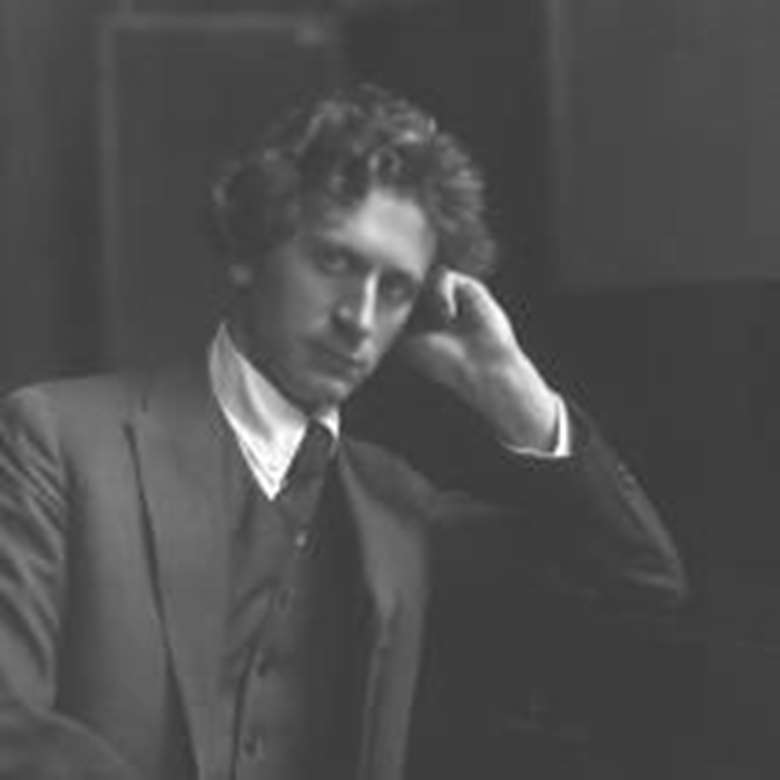Percy Grainger - a tribute
Gramophone
Thursday, January 1, 2015
A tribute to the Australian composer, 50 years on...

Everyone knows Country Gardens (based on an English Morris dance) and probably Molly on the Shore, Shepherd’s Hey, Mock Morris and Handel in the Strand. Their popularity has tended to overshadow the rest of Grainger’s prolific and varied output and though he would never be put on a pedestal to join the pantheon of immortals, he is unorthodox, original and deserves better than to be dismissed by the more snooty arbiters of musical taste. There is a tendency to overlook real craftsmanship when it is put to (sometimes) frivolous use.
The amusing and bizarre aspects of his life are well-documented in John Bird’s biography (see below) – his habit of jogging from one concert venue to the next with a heavy rucksack on his back; his abnormally close relation with his formidable mother Rose and her subsequent suicide; his predilection for physical self-flagellation; his ‘blue-eyed’ Nordic views; his substitution of Italian and German musical terms for Anglo-Saxon ones (chamber music = Room Music, crescendo = louden, viola = middle-fiddle and other self-conscious eccentricities).
Grainger (born George Percy, he changed to his mother’s maiden name of Aldridge later) first made his name as a concert pianist. His teacher in Melbourne, Louis Pabst, was a student of the great Anton Rubinstein and Grainger made a strong impression on all those who heard him; he made numerous piano-roll recordings, including one of the Piano Concerto by his friend Edvard Grieg. Among his many other friends were Gershwin, Delius and Duke Ellington. After living in Britain for a time he settled in America where he took citizenship and, in 1926, married his "Nordic Princess" Ella Viola Ström in the Hollywood Bowl before a paying audience of 20,000.
As a composer he was virtually self-taught and his best music relies on conventional harmonies, with an emphasis on vigorous rhythms and traditional tunes. He was tirelessly curious in trying out new combinations – he wrote for the solovox, theremin, marimba, harmonium, banjo and other underused instruments as well as experimenting with electronic instruments as early as 1937.
When he died (of cancer), he requested that when the flesh had been removed from his skeleton, he should be placed for preservation and display in the Grainger Museum, Melbourne. His request was denied.
Six Grainger facts
- He spoke 11 foreign languages fluently, including Icelandic and Russian.
- In the mid-1920s he was earning $5000 per week from performing (equivalent to $60,000 in today’s money).
- He experimented with “chance music” in 1912, 40 years before John Cage
- Liked to pass the time when travelling by ship shovelling coal in the boiler room.
- He gave more than 3000 concerts as a performer.
- In the 1930s Grainger endowed a museum in Melbourne dedicated to himself and to which he donated manuscripts, scores, instruments, 73 whips and blood-stained shirts
Essential reading
Percy Grainger by John Bird (OUP: 1999) Buy from Amazon
The New Percy Grainger Companion by Penelope Thwaites (Boydell Press: 2010) Buy from Amazon
Percy Grainger (Oxford Studies of Composers) by Wilfred Mellers (OUP: 1992) Buy from Amazon
Essential listening
“The Grainger Edition” Various artists (Chandos CHAN10638) Buy from Amazon
A 19-CD set collecting together Chandos’s magnificent survey, though rather annoyingly Chandos hasn’t thought to list the contents of each disc on the individual sleeves, so you have to keep consulting the booklet. Retails for about £45 (the equivalent of £2.30 a disc) and worth every penny for the joy it will bring.
“Salute to Percy Grainger” Various artists (Eloquence 4802205) Buy from Amazon
The kernel of this two-disc set is an album from the late 1960s and early 1970s that finds some of the UK’s finest musicians (Peter Pears, John Shirley-Quirk, Benjamin Britten, Steaurt Bedford) paying tribute to this most individual of composers. The set has been filled out with Pears and harpist Osian Ellis performing Six Dukes went a-fishin’, a 1927 recording of Grainger himself at the piano and Gardiner’s DG recording of The Warriors. A terrific one-stop shop.
“The Londonderry Air” – The Music of Percy Grainger Monteverdi Choir; English Country Gardiner Orchestra / John Eliot Gardiner(Philips 446 657-2) Buy from Amazon
A Gramophone Award-winning collection that finds the Monteverdi Choir on unfamiliar ground but, typically, singing their hearts out. Grainger was a good friend of Gardiner’s great-uncle Henry Balfour Gardiner, so the budding young conductor would have met the great man!
Jungle Book and other choral works Polyphony / Stephen Layton (Hyperion CDH55433) Buy from Amazon
The premiere recording of Grainger’s Kipling settings, affectionately done by Polyphony, placed alongside some astonishingly imaginative orchestrations of favourites like Shallow Brown, one of his greatest arrangements. Newly reissued at budget-price, here’s an economical addition to the Grainger discography.
Piano Music Marc-André Hamelin (Hyperion CDA66884) Buy fromAmazon
Hamelin brings his formidable technique and great sense of humour to bear on these toe-tapping and wittily inventive pieces. A splendid collection of Grainger’s solo piano pieces.
Grieg Piano Concerto Percy Grainger (pf); Kristianstand SO / Ralf Gupta (2I blu-ray disc 2L60SABD) Buy from Amazon
By the wonders of modern technology enjoy Percy Grainger performing the Grieg concerto with a modern orchestra (the piano roll is accompanied very skilfully!).
Grainger “The complete 78rpm solo recordings 1908-1945” Percy Grainger (pf) (APR APR7501) Buy from Amazon
Unlike many of the discs featuring Grainger as pianist, this set collects together his 78rpm recordings, not the piano rolls, so more accurately conveys his character as a performer. As well as much of his own music, Grainger can be heard playing music by Schumann, Grieg and the first-ever commercial recording of Chopin’s B minor Piano Sonata.
This article was originally published in 2011 to mark 50 years since the composer's death.











